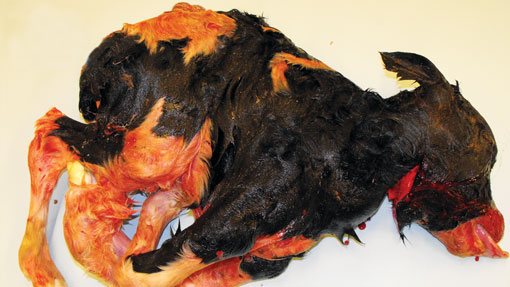Ask the Vet: Your questions on Schmallenberg virus answered

Knowing whether an animal has aquired immunity following infection with Schmallenberg virus is a question being answered by vet Ian Nanjiani of Westpoint Vets.
Q A friend who had deformed calves in autumn 2012 kept those cows, put them back in calf and one has already had a deformed calf again.
Do we conclude from this that cows do not become immune to the virus (like German measles) and can continually either suffer from infertility or malformed calves?
A We aren’t yet able to answer the question on the long-term effects of SBV infection, though detailed work and observation is on-going across the EU just now.
The effects of SBV infection on conception/the very early embryo remain unknown, though SBV infection does cause a fever, and any fever can impact conception.
There are widespread anecdotal reports of poor conception due to SBV, but we haven’t seen any robust evidence of this where infertile animals were tested pre- and post-mating, and shown to have seroconverted (i.e. have been infected around mating).
A single blood antibody test, or any bulk milk test cannot pinpoint the time of infection, so we must be cautious drawing conclusions from these – we may detect an infection that occurred months before mating, and would therefore expect the animal to have been protected at mating, at least to some extent.
Recovered animals are believed to have lasting immunity, though we don’t know how complete this immunity truly is.
Our AHVLA colleagues have no field data showing persistence of SBV infection in the uterus or ovaries, and have close contacts with other EU expert groups.
Persistence of infection was shown in sheep following experimental infection with SBV (remember experimental infections don’t represent the real life situation in most cases).
Our current understanding is any persistent infection would be likely to “boost” immunity, though this remains speculation.
We must bear in mind infertility is multifactorial, so any investigations should be broad based. The EU veterinary community is still learning about this disease, and results are freely shared when available.
Ian Nanjiani, a clinical research vet surgeon at Westpoint Vets
